Advice and warnings for travelling to Cyprus
Advice and warnings for travelling to Cyprus
Hello everyone! Today I'm bringing you my penultimate post about Cyprus. I would like to give you some advice that I consider to be fundamental if you're planning a visit to this island. Remember that you have more content in my blog about Cyprus that you can read by clicking here here or here here where I talk to you about interesting places to visit around Ayia Napa and Protaras. Before I go on and on and on, let's begin!
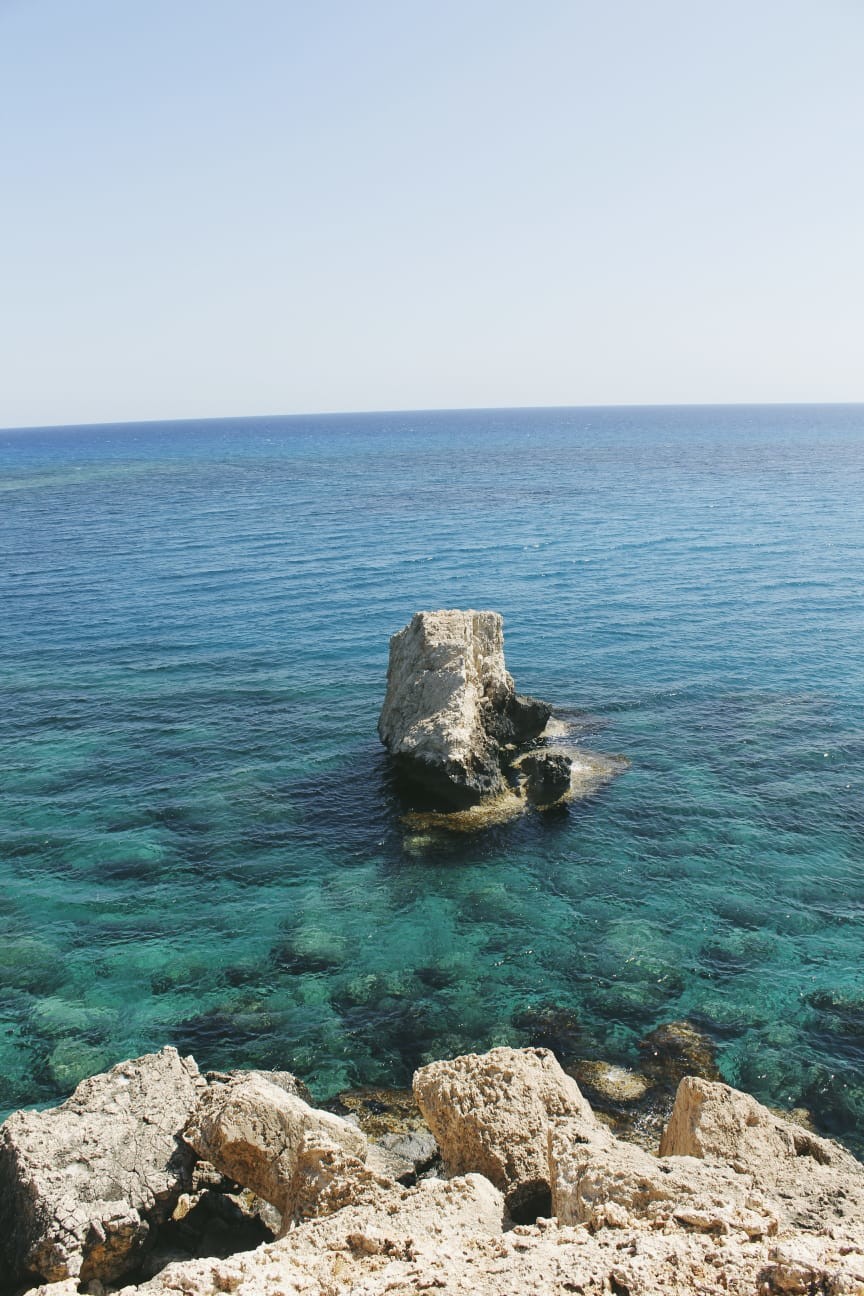
Valid passport
To begin with, having a valid passport is essential if you want to visit the Turkish part of Cyprus, which is in the north. Nowadays the capital of Cyprus, Nicosia, is divided into two. There's a Greek side and a Turkish side. This was because of practically the biggest conflict in this country in 1974 when Turkey invaded the north of Cyprus. A lot of people will tell you that Nicosia isn't safe to visit, but it actually is. A lot of tourists visit the capital every day and it's truly intriguing how the streets that run into the border between the two parts are cut off suddenly by this wall.
Credit card so you can rent a car
If you want to rent a car, the best thing to do is have a credit card with you (not a debit card) because the owner will hold the deposit in case anything happens to the car. The majority of companies don't accept debit card, and we only have one of those, so we had to search for hours, calling, investigating, informing ourselves until we finally found a company that accepted our cards and didn't ask for a deposit. That was a bit of a let down because we had seen some really cheap companies and in the end, this was the only one that we found whose conditions agreed with ours so in the end, the total price of renting the car was a little bit more than we'd expected.
Like I said, we rented the car over the internet. Here I have to tell you to pay attention to the collection and returning times of the car, because the price depends on the exact timings, so the price could change. Normally you have to put a ball-park time to collect and return the car, which you don't have to stick to a T. Here, however, one hour more or one hour less can be the determining factor, so think about the time you put down because when it comes to the price. Something that surprised us, is that it can mean a big difference.
Anyway, I would only recommend renting a car if you're only going to do a short trip to Cyprus or if you're travelling all over the island. Normally, what the people who stay in a hotel and at the beaches nearby do is get a taxi or bus from the airport. So, it depends on what kind of trip you're planning on doing whether you need a car or not. Plan your expenditures before anything else when you do your trip.
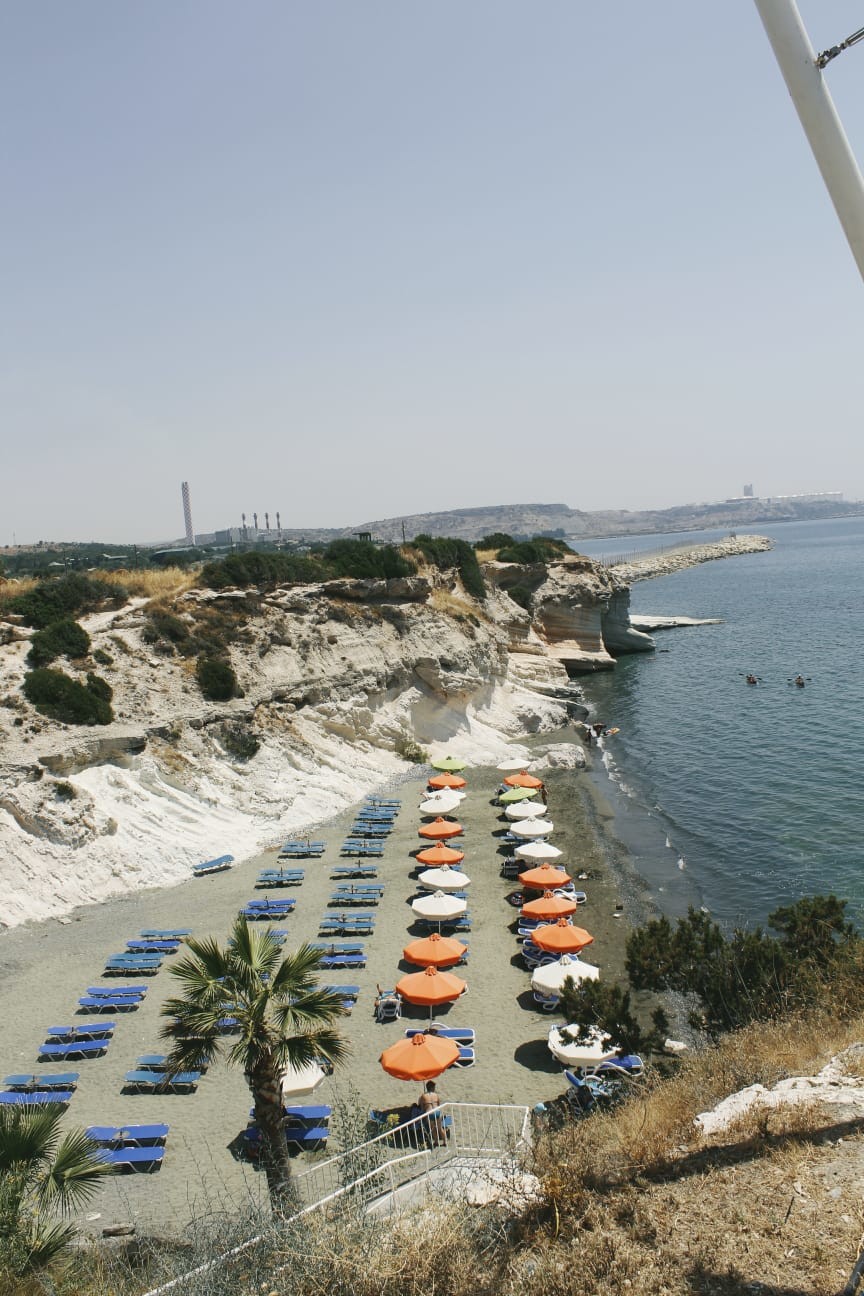
Drive on the left
Continuing on the theme of cars, you have to know that in Cyprus, like in Malta and the United Kingdom, they drive on the left. We were a bit nervous at the beginning, but after half an hour on the road, the fear passed. I didn't drive so I simply had to remind Angel not to forget to drive on the left. The roundabouts were the most problematic, truly. They're a type of turbo-roundabout and you have to watch very carefully before entering at the marks that are painted on the road, and they show the information that explain whether you should be on the inside or outside lane. Also, the weirdest thing might be changing the gears with the wrong hand. But, if you go slowly, you won't have a big problem. In our case the longest route was from Larnaca to Ayia Napa and it was almost all a straight line. We didn't have to change nor take any detours, so we didn't have any problems. Afterwards, in Ayia Napa we were at Cape Greco and there were barely any cars so the risk of having a problem or accident wasn't high.
Use an adaptor
Driving on the left isn't the only British characteristic feature that Cyprus has, but also using plug adaptors. We didn't think about this and we didn't bring any with us. Luckily, the hotel we were staying in had a lot to offer us so we didn't have to buy any. Anyway, it must be quite a common thing for people to not have plug adaptors as they sold them in all the supermarkets in the touristic areas.
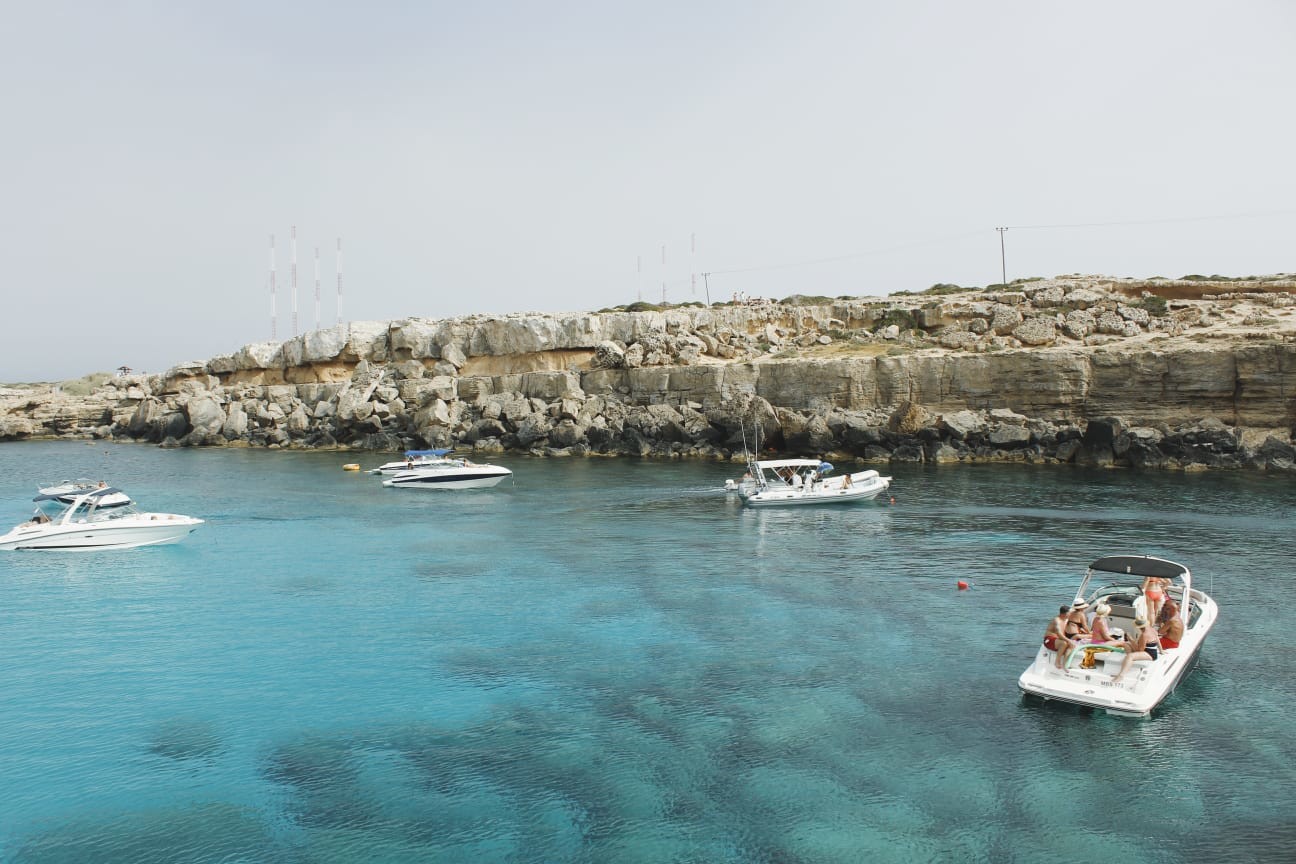
Go to airport with plenty of time
On the last day when we arrived at the airport, we didn't expect such a queue to check-in or go through passport control. You could really tell how many members of staff were lacking at Larnaca airport. We were there for ages waiting, the queues were massive and there were moments in which we thought we were going to miss the plane. What we did was form a queue behind the already massive one, because we couldn't find another solution. We finally made it to the plane, but bear in mind that all the procedures here go very slowly, so make sure you go with enough time. To me it was terrible service because this was at the beginning of June, so they'll really struggle when the influx of tourists start to arrive. However it won't just be this, but bearing in mind the great number of flights that will be circling, they should double the services.
Don't stay in the party zone of Ayia Napa
We could say that Ayia Napa is divided into three parts: the party zone, the family zone and the non-built up part where there's only nature. As I said previously, we were in the party zone on the first day and it horrified us. Unfortunately, we didn't know that our hotel was right in the heart of the party area.
The problem with the parties in Ayia Napa is that it's very similar to the party zones they have in Ibiza or Mallorca. There aren't any local people, the majority of tourists are British, German or from the north of Europe. And, they only come to get drunk or take drugs. Therefore, the rest is just surreal. Being in this area is like being in a made up city. And it terrified me. There's absolutely nothing authentic there. All the restaurants are chains, nothing Cypriot at all. There are so many Italian, Mexican, Vietnamese, Chinese, etc. restaurants. All in a straight line. All the tourists walk past with their bright red skin glowing, burnt, because they don't use protection. People move about on quad bikes, without a shirt... It's all very odd. The only things you have in this area before getting to the beach are hotels, restaurants and clubs. And if you're lucky, a supermarket.
When it comes to the supermarkets in this area, we wanted to buy food to make ourselves dinner, but it was an impossible mission. There were only four things: water, alcohol, ready to eat "food" like cereal, doritos, donuts, etc. and aloe vera, which I imagine was for the burnt tourists.
As I explained, we were in the middle of it all and it was a monumental mistake. We should have researched the area a lot better before getting this apartment because it was a FAIL. At night, I woke up at least twice because of the noise and the music from the clubs and people shouting. I got up in the morning. I wanted to look for somewhere to have breakfast, but I couldn't find anything. Everything was closed because when I woke up, everyone else carried on sleeping. With regards to our surroundings; bottles of alcohol, broken glass and people doing the walk of shame. It was like being part of a zombie apocalypse or something. Surreal. Luckily our hotel room was nice and we had air conditioning. It wasn't all bad.
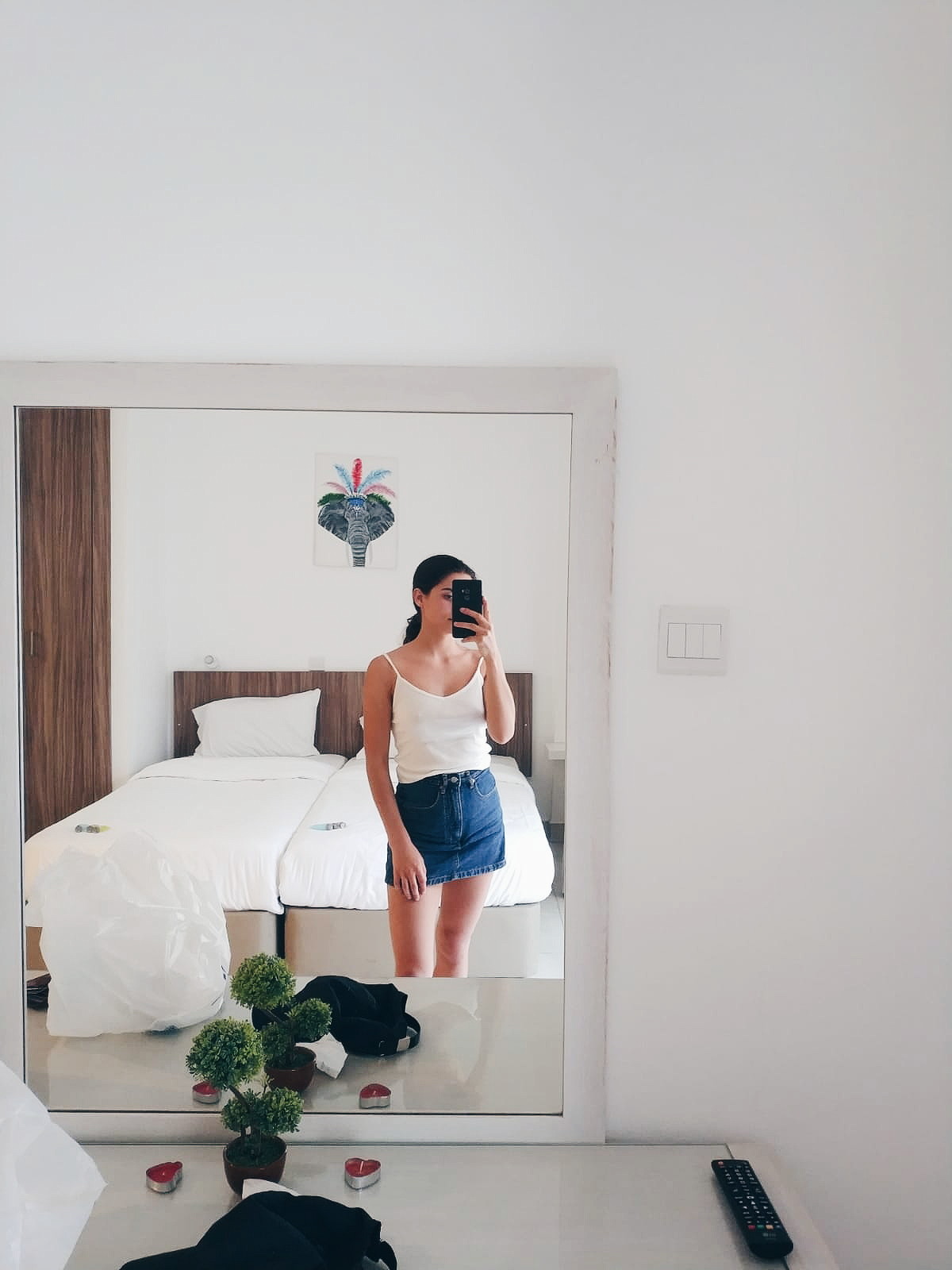
In short, everyone who stays in this area, goes for that very reason. In fact, our hotel had a pool where they had parties, massive parties, where people go to drink alcohol, dance, etc. It's like an open-air disco. Also, the hotel gave us a type of card that we got free drinks with in a bar nearby. Like I said, everything was directed towards partying. If you go for this reason, it's the ideal place. If not, it could be hell. It's a good thing that we were only there on the first day, and the following we got our car and went to other parts of the island.
Therefore, I would recommend that you stay in the Protaras area because it's a lot more calm and less touristy than Ayia Napa. If you stay away from the parties, massive hotels and huge crowds, you'll be able to enjoy peaceful beaches and authentic and local places.
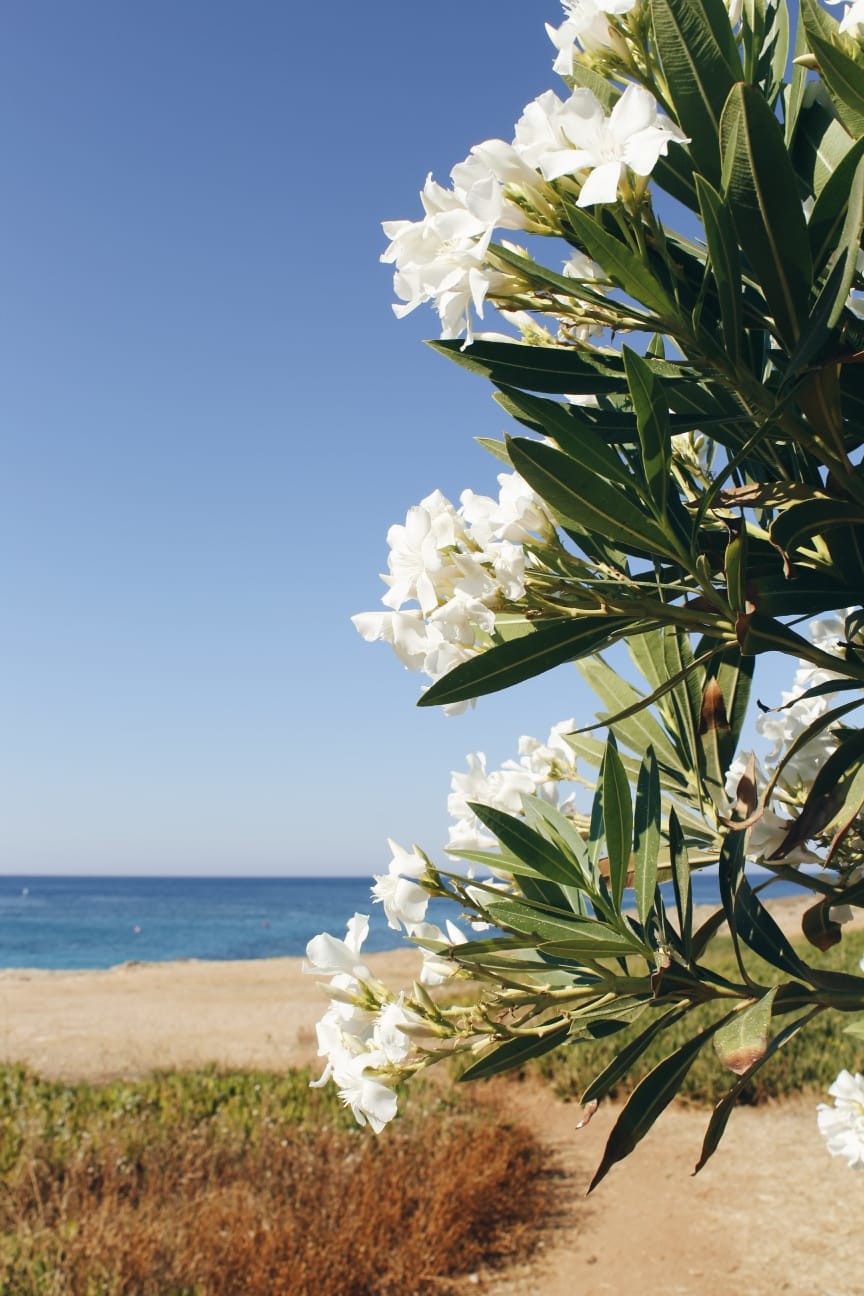
Necessary materials for the beach
I would recommend taking beach shoes, snorkels and sun cream.
The sun is very strong any time after 6am. From 8am to 5pm is the most critical time, which in Spain would only be from 12pm to 3pm. Therefore, suncream is fundamental. A hat wouldn't go amiss either to protect yourselves from the sun. I ended up being super tanned, but with slightly burnt shoulders, despite continuously myself in suncream.
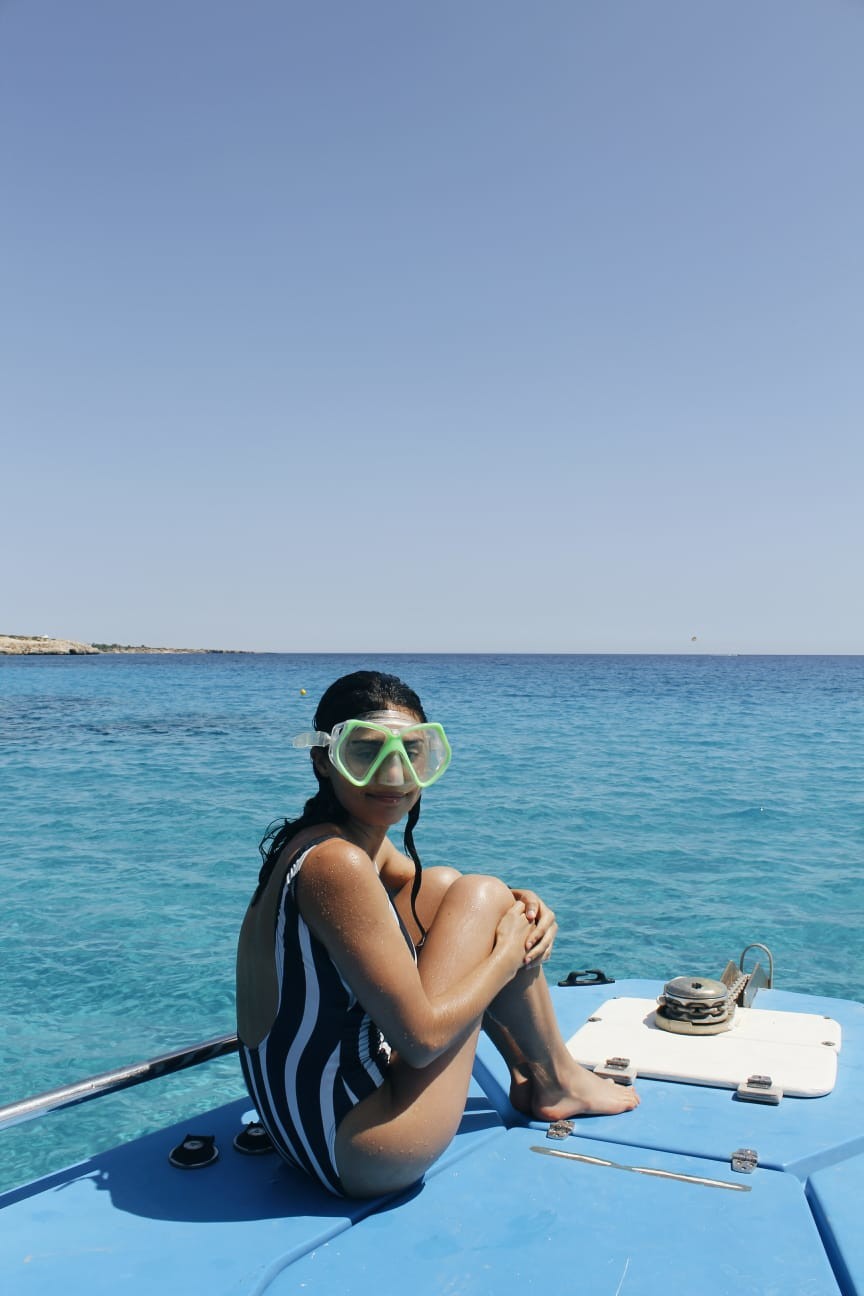
You'll need your beach shoes if you visit Cape Greco as the rocks are very steep and they'll hurt if you don't wear shoes. The beach shoes are a marvel because you can move freely without having to worry about what's underneath your feet. And also you can swim and snorkel because they follow the shape of your feet perfectly. There are a lot of supermarkets where you can buy them quite cheaply, around €7 I think.
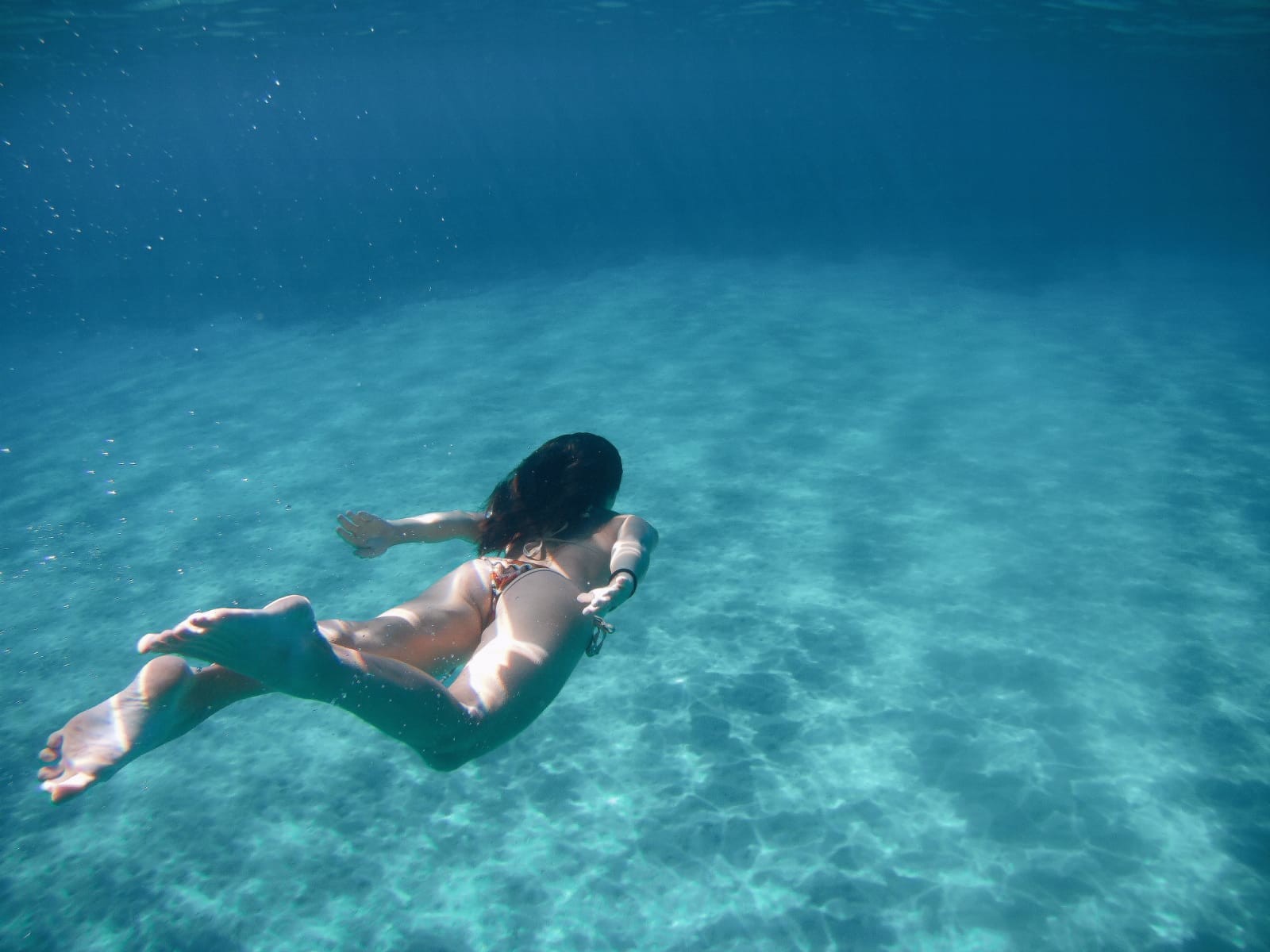
Boat trip
My top piece of advice is to go on a boat tour. It was the best thing we did because it was an incredible experience. We got the boat in Ayia Napa Harbour with the company Dolphin Safari Boat. We paid €30 per person, but the tour lasted three hours and it was perfect. Also the boat was small and there weren't many people so the captain was very friendly and approachable.
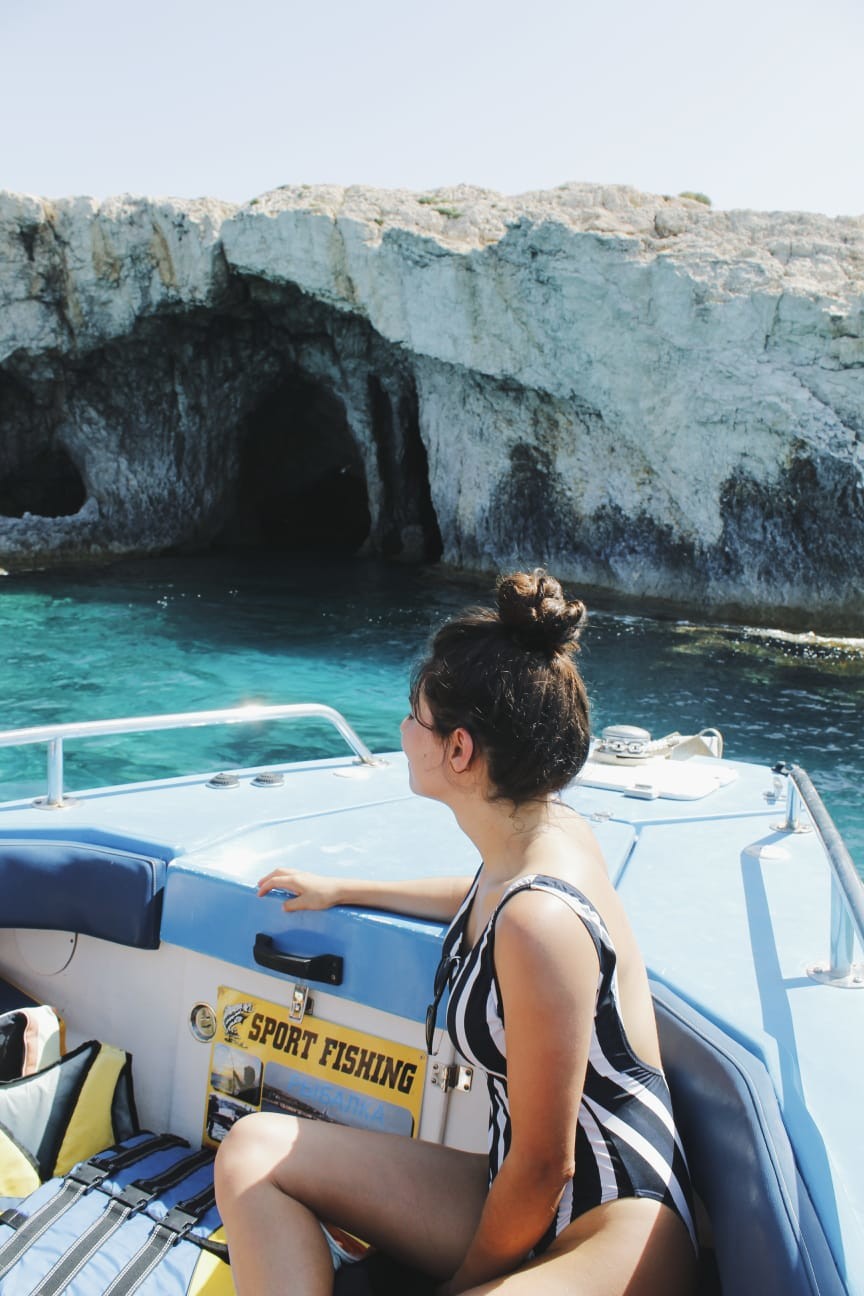
We went all over the Ayia Napa and Protaras region by boat and it was great, because we could see all the places we would visit in the next few days from the water: Sea Caves, Blue Lagoon, Love Bridge, etc. Also, we could go swimming in the Blue Lagoon, pass underneath the Love Bridge and see dolphins as well. The boat never guarantees that you'll see some, but the possibility exists. It seems like we had a lucky day because we saw them come very close to us, passing underneath our boat, for about 10 minutes. It was really fun.
They offered us drinks on the boat and when we stopped to go swimming, they gave us things to go snorkelling with. Also the people that worked on the boat were really friendly, they told us where they were from, how they had ended up working here, etc. Although what I'll always value more is them explaining the tiny details about the boat tour to us. They told us an old legend that believes that if you pass under the Love Bridge and make a wish, it comes true. They also taught us about the "Ghost Town Famagusta" and explained the history to us. It was from when the Turks invaded and the people who used to live there had to leave and barely even had two hours to collect their belongings and go. Now, everything is still there, practically deserted. The buildings are empty, in bad conditions, and it looks exactly like a ghost town. I'm sure that there are tours to be able to visit this part of the island. I have to say it's quite interesting, but with the beautiful nature that Cyprus has, I don't really fancy "wasting my time" here.
Asking local people
Making the most of the fact that the men working on the boat were local, we asked them about good restaurants. Being in a very touristic zone, we didn't know whether to trust TripAdvisor, and we didn't fancy going to each one individually to look at the menus. We were really hungry. They gave us some good recommendations, so that was great. Asking locals for suggestions is always a good idea.
Trying local food
The good thing about Cyprus being an island is that you can eat fish and fresh seafood. Also, I recommend that you try the Greek yogurts they have because are amazing quality. So is the feta or halloumi cheese, typical Cypriot cheese. It's so good.
And that's it for today, the penultimate post about Cyprus. I hope that this has served you well to help you plan your trip to this Mediterranean island. Thanks so much for reading, and see you in my next post. Bye!
Photo gallery
Content available in other languages
Want to have your own Erasmus blog?
If you are experiencing living abroad, you're an avid traveller or want to promote the city where you live... create your own blog and share your adventures!
I want to create my Erasmus blog! →











Comments (0 comments)